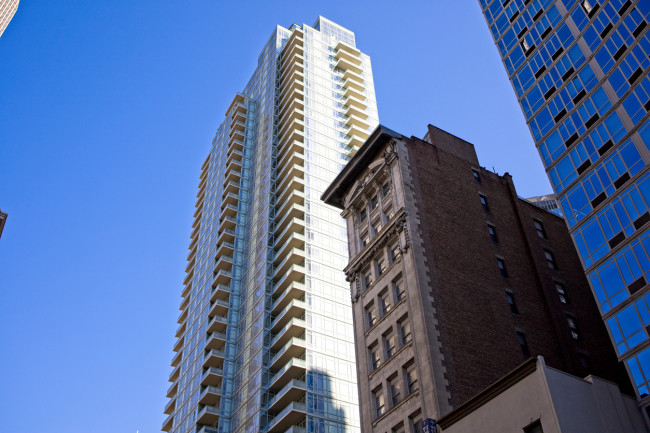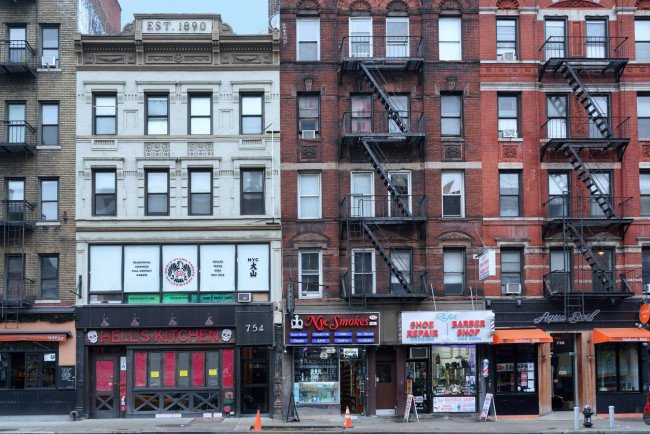I worked in NYC housing court for 20 years. Here are my 3 best tips for tenants squaring off against their landlords
- JustFix’s Sateesh Nori shares his best tips for tenants facing housing court
- The best thing you can do is know your rights, and who your landlord is
- Make sure to organize with your fellow renters and get your community involved

Facing housing court can be necessary to get your landlord to make repairs or move back in after an eviction.
Nicolas McComber/iStock
Housing court can be a daunting experience whether you’re asking a judge to force your landlord to make repairs or worse, facing eviction. It’s also a process New Yorkers aren’t usually familiar with until they have to be.
“Probably more than half of the people that live in New York City have never been to housing court,” says Sateesh Nori, an attorney and executive director of the tenant advocacy nonprofit JustFix. “They don't know what happens there, that someone could lose their home in a matter of weeks or months, that this could happen to elderly people, people with kids and people who are disabled.”
Nori spent two decades defending tenants in NYC housing court and saw renters’ lives uprooted by eviction proceedings. He wrote a book about his experience; “Sheltered: Twenty Years in Housing Court” came out in March. In it, he offers advice for tenants fighting for safe living conditions.
Evictions have grown in NYC, hitting 4,400 households last year after a pandemic-inspired moratorium allowed just 239 legal evictions from March 2020 through January 2022. As Nori writes in his book, an eviction can be catastrophic and information about how to stop one can be difficult to parse.
Nori is looking to close that information gap through JustFix, a startup founded in 2015 that helps residents request repairs, research their buildings, and get their rent history. And he has some sage advice for tenants facing housing court, outside of just a little research.
Below are his tips for tenants going to NYC housing court.
1. Understand your rights
NYC tenants are entitled to live in safe, well-maintained buildings free of pests and leaks under a set of lease requirements known as the warranty of habitability. These are in effect regardless of whether an apartment is market rate or rent stabilized. Renters also are also legally protected from landlord harassment, for example withholding repairs or discrimination.
Those rights might seem like common sense, but they are essential to know so you can identify when to head to housing court for help and what violations to document, Nori says.
“People assume what their rights are and they make decisions based on what they think they're entitled to,” Nori says. “Sometimes they give up because they think they don't have rights, or there's nothing that can be done. Often, that's not true.”
Landlords are legally required to provide smoke, carbon monoxide detectors, functioning mailboxes and to allow you to sublet your apartment, if you follow a specific legal procedure. An apartment owner also has to keep your unit warm in the winter—at least 68 degrees during the day and 62 degrees at night from October through the end of May.
If your landlord fails to live up to their obligations, you have a right to head to housing court to force them to do so, and usually the right to a lawyer when you get there.
Tenants can call 311 and ask for the "tenant helpline" to get connected with a lawyer, regardless of their immigration status, according to the NYC Housing Preservation & Development department. There’s also a handful of nonprofits that offer free legal assistance, including The Legal Aid Society.
Otherwise, renters who show up to their first court appearance and ask for an attorney are required to receive one for free, plus a translator if needed, if they meet certain income requirements, according to the NYC Human Resources Administration and the New York State Unified Court System.
2. Gather as much information as possible
As the old Sun Tzu saying goes, “know thy enemy.” Of course, Tzu never had to navigate NYC’s network of limited liability companies that often obscure the true owner of an apartment building.
“Many people in New York don’t know who their actual landlord is,” Nori says. “You can't hold anyone accountable if you don't know who it is that's trying to evict you, or deny you your rights.”
Renters should figure out who actually owns their apartment and gather as much evidence as they can: photos of unaddressed repairs, vermin or other poor living conditions, Nori says.
JustFix offers a tool, Who Owns What in NYC, where you can look up your landlord by your address or their name. After typing in an address, you can view your building’s complaint history, the name of your landlord, other buildings they own, past evictions and whether its rent stabilized.
You can also go directly to the Automated City Register Information System, which catalogs all property and mortgage transactions in the city. It’s not the easiest website to navigate, but it will allow you to see when your building was sold, for how much, and who signed for the deed—another way to identify the person behind the LLC.
3. Organize with other tenants
Housing court can be particularly difficult for New Yorkers without the money or time to fight their landlord. If you’re working a second job or taking care of your kids, it can feel impossible to track down the information necessary to win a court battle, even with free legal assistance, or if you’re a lawyer yourself.
“My friends from law school have called me when they've had problems with their landlords, and these are people who went to law school, studied for the bar and work as lawyers,” Nori says. “There's no way to know [this stuff] unless you're going through a problem and at that point it is too late. How can you be expected to figure out how to get help when you're in the middle of a crisis?”
Nori’s best advice to tenants feeling like they can’t go up against their landlord alone is to organize. Find other people in your apartment building or your local community who have experienced the same thing or who’ve gone to housing court before. If you’re having trouble with your landlord, chances are your neighbor has had some problems too.
Community support is also crucial to get the attention of elected officials, which can help turn the balance of power in your favor if you are going up against a landlord who has mistreated multiple renters. (FYI: It’s a felony for your landlord to harass two or more tenants, and a misdemeanor to harass one).
Getting your local community involved is also good for morale, which can easily run low when you’re stuck fighting your landlord in court.
“If people feel they're all alone they might give up,” Nori says. “But if people join together, they have a lot more power. And they can really change some of the things that are happening, not just to them, but to people in the future as well by changing the laws and practices.
You Might Also Like



























